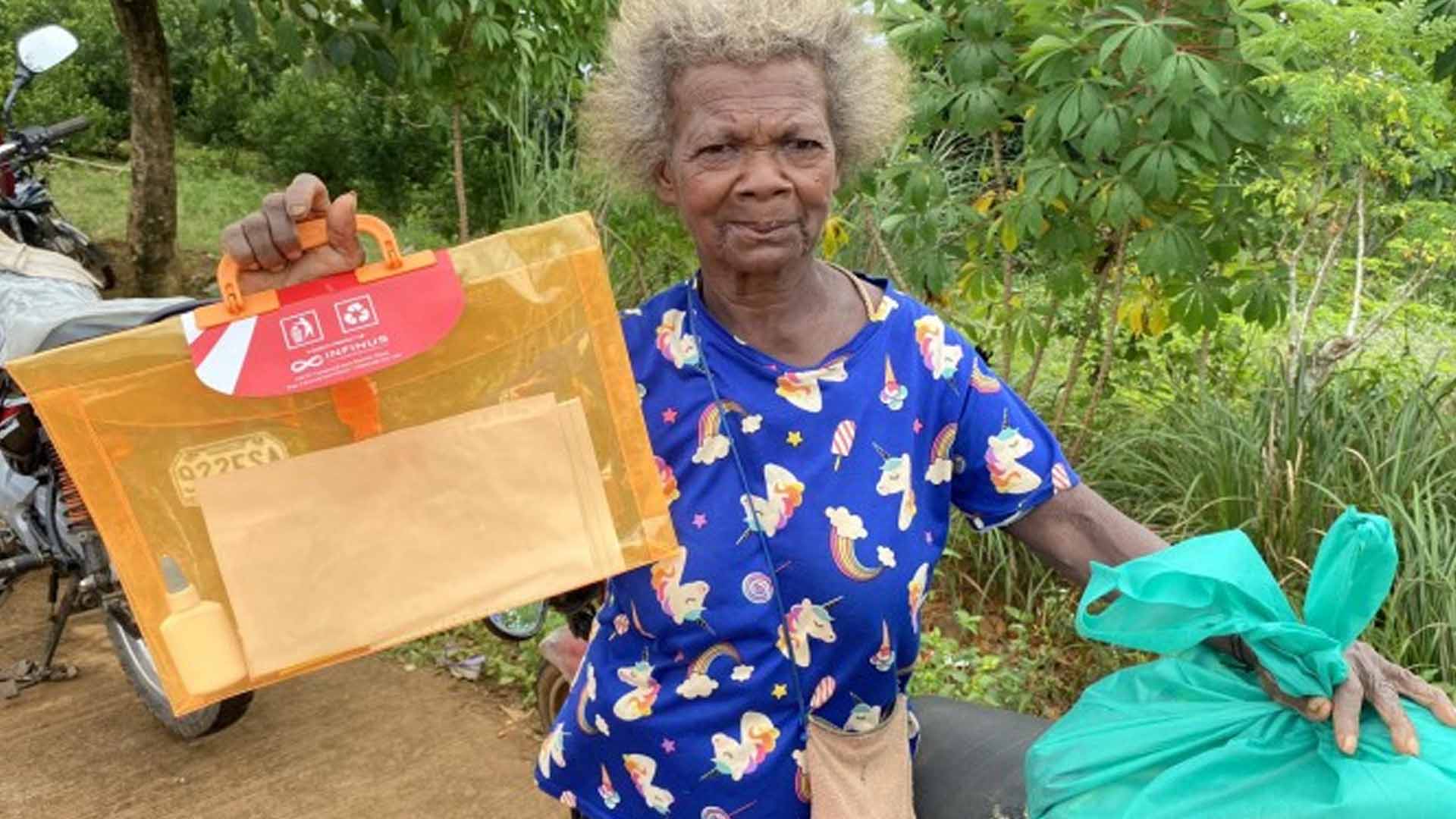Melody Portugal patiently stood in line to get her Christmas gifts — a bag of groceries and an envelope of school supplies.
“These will be of great help to me,” she said in the vernacular, proudly showing her Grade 2 notebooks and pad papers, which would be her ally in her reading and writing journey.
For years, Portugal has diligently made the five-kilometer pilgrimage to the Katutubo Village Elementary School (KVES) in Barangay Bakal in Paracale, Camarines Norte.
It was in 2020 when Allan Terrazula, school principal, urged Portugal’s family to move near the premises of KVES so they could have better access to education.
As the day gradually descends towards dusk, Portugal trades her shovel and shears, which she uses to tend a calamansi farm, for pencils and papers in pursuit of her lifelong dream.
“I just want to learn so I will not get lost when I travel because I can read the signboards,” she said, a soft and knowing smile playing on her lips.
Portugal is 60 years old.
Education for all
Three years ago, Portugal decided to attend formal education despite the odds.
As a member of the Manide tribe, an indigenous community found mostly in the Camarines Norte province in Southern Luzon, Portugal admits lack of access to education and her fear of being with non-indigenous people (IP) hindered her from attending school during her younger years.
But now that she has the opportunity, she wouldn’t let anything — not even her age — get in the way of her dream.
Portugal is just one of the 184 IPs enrolled in KVES.
Managed by the Department of Education with the support of the provincial and municipal governments of Camarines Norte, the three-room edifice serves as a literacy hub for the Manide tribe, offering primary education to those who want to learn regardless of age.
Terrazula said of the 184 IPs who attend school, 98 are children and 86 are adults.
KVES combines mainstream and modular education for both children and adult learners. They also have night classes to cater to IPs who work during the day.
The school is staffed by seven competent teachers, providing basic education that is sensitive to the Manide tribe’s cultural heritage but at the same time, responsive to the changing educational landscape.
Beyond imparting academic skills, KVES serves as an incubator for dreams, endowing IPs with the gift of possibility by empowering them to go beyond their perceived limits and embrace the infinite potential of what could be.
“We want to make them feel that the law is equal to all and that nothing is impossible. We love them, and we believe they have the right to equal access to education,” Terrazula said.
Fight against illiteracy
Every day, KVES teachers walk for more than two kilometers just to reach the school, unmindful of the challenging terrain that lies ahead.
Portugal recalled that during the early years, IP children would hide behind their mothers for fear of going to school.
“But now, it is usual to see mothers sitting side by side with their young children as they read together,” Portugal said.
It is this symbolic display of determination that fuels Terrazula and the rest of his team to combat illiteracy among the Manide tribe.
Despite the many challenges, he said their passion and commitment enable them to overcome the many barriers that come their way.
“Whenever I see Melody, I feel motivated to pursue our mission,” the principal said.
In this remote village in Bakal, Paracale town, a humble school keeps the flame of education alive for IPs eager to overcome the legacy of discrimination and oppression that has previously hindered their learning opportunities.
And Melody Portugal, all of 60 years, becomes a living testament that it is never too late to aspire for and achieve one’s loftiest dreams.
Time might have weathered her body, but her soul defies the limitations of age.
“As long as my eyes can see clearly, I will study how to read and write,” the sprightly grandmother cheerfully said. (PNA)



